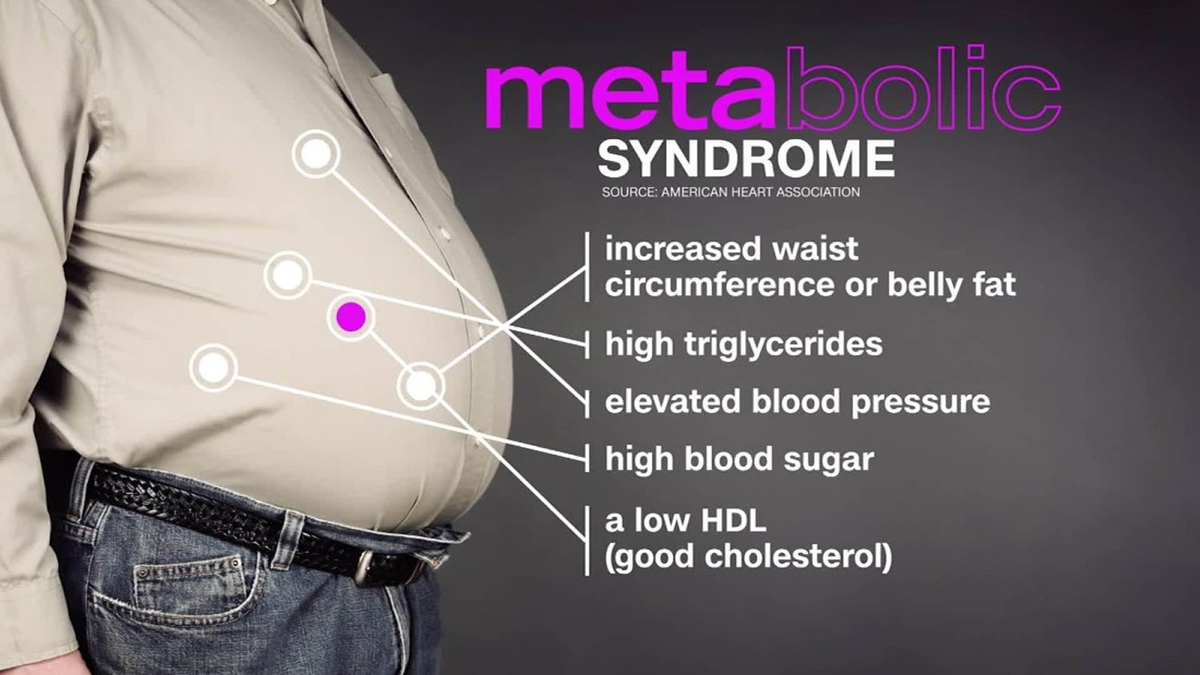Ever heard the term metabolic syndrome and wondered what it actually means? Simply put, it’s not just one condition but a group of risk factors that increase your chances of developing heart disease, stroke, and type 2 diabetes.
You might have metabolic syndrome if you have at least three of these five conditions:
✔️ Excess belly fat (waist size over 40 inches for men or 35 inches for women)
✔️ High blood pressure (130/85 mmHg or higher)
✔️ High blood sugar (100 mg/dL or above – aka insulin resistance)
✔️ High triglycerides (150 mg/dL or higher)
✔️ Low HDL ("good") cholesterol (less than 40 mg/dL for men, 50 mg/dL for women)
If this sounds familiar, don’t panic—but don’t ignore it either. Metabolic syndrome can be a silent but serious condition, and the sooner you take action, the better.
How Do I Know If I Have Metabolic Syndrome?
The tricky part? You might not feel any symptoms—until serious health problems start showing up. That’s why regular doctor visits and blood tests are essential.
A healthcare provider will check:
🩸 Your blood pressure
🩸 Your blood sugar levels
🩸 Your cholesterol & triglycerides
📏 Your waist circumference
If your numbers fall into the high-risk range, your doctor may diagnose metabolic syndrome and recommend lifestyle changes—or, in some cases, medications.
What Are the Dangers of Metabolic Syndrome?
Here’s the real talk: metabolic syndrome doesn’t just sit there—it actively increases your risk for serious diseases.
💔 Heart Disease & Stroke – High blood pressure, bad cholesterol, and insulin resistance damage your arteries over time.
⚡ Type 2 Diabetes – Insulin resistance can turn into full-blown diabetes, making blood sugar control even harder.
🫀 Fatty Liver Disease (NAFLD) – Extra fat can build up in the liver, leading to liver damage.
❌ Kidney Disease – High blood sugar and blood pressure put strain on the kidneys.
🩸 Higher Inflammation & Blood Clots – These increase the risk of heart attacks and strokes.
Scary? Yes. Reversible? Also yes—if you take action now.
How Can You Treat Metabolic Syndrome?
1. Clean Up Your Diet
The best way to fight metabolic syndrome is to start with what’s on your plate.
🥗 Focus on whole foods – Think lean proteins, healthy fats, fiber-rich carbs, and vegetables.
🚫 Cut out processed foods – Reduce sugar, refined carbs, and unhealthy fats.
💧 Stay hydrated – Water helps with metabolism and insulin regulation.
🥑 Eat more healthy fats – Include avocados, nuts, olive oil, and fatty fish for better cholesterol balance.
If you’re looking for a structured meal plan, a Mediterranean or low-carb diet works great for most people with insulin resistance.
2. Get Moving
You don’t need to become a gym rat, but consistent movement is a game-changer.
🏋️♂️ Strength training (lifting weights) helps preserve muscle mass and boosts metabolism.
🚶 Walking daily can lower blood sugar and improve heart health.
🧘 Yoga or Pilates can help with stress management and flexibility.
Aim for at least 150 minutes of exercise per week—that’s just 30 minutes, five days a week.
3. Lose Weight (If Needed)
Even losing just 5-10% of your body weight can make a huge difference in reversing metabolic syndrome.
For those struggling with weight loss, medications like Ozempic™ or Wegovy™ (GLP-1 receptor agonists) might be an option. These drugs help with both blood sugar control and weight loss by reducing appetite and slowing digestion.
4. Manage Stress & Sleep
😴 Poor sleep and high stress can worsen insulin resistance. Try:
🧘♀️ Meditation & deep breathing
🛌 7-9 hours of quality sleep per night
🌅 Morning sunlight exposure (helps regulate metabolism)
5. Consider Medication
If lifestyle changes aren’t enough, your doctor may prescribe:
💊 Metformin – Helps with insulin resistance and blood sugar control.
💊 Blood pressure medications – If your BP is consistently high.
💊 Statins or fibrates – To lower cholesterol and triglycerides.
You’re in Control
Metabolic syndrome isn’t a life sentence—but it’s a wake-up call. By making small, consistent changes in diet, exercise, and lifestyle, you can reverse it and lower your risk for diabetes, heart disease, and more.
Take charge of your health today! If you’re concerned about metabolic syndrome, schedule an appointment with us and start making changes that your future self will thank you for.

